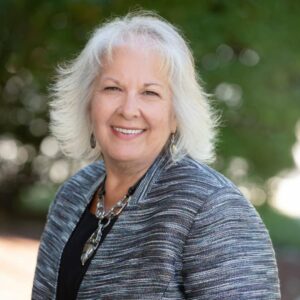Effort seeks new name for CCRCs
It’s about the ‘R’ word—retirement, says LeadingAge President and CEO Larry Minnix. And the ‘C’ word—care, he adds.
Those two words and older adults’ perceptions surrounding them are leading the association of not-for-profit aging services providers to partner with one of those providers, Mather LifeWays, to spearhead an effort to develop a new name for continuing care retirement communities (CCRCs). The “CCRC NameStorm” initiative involves in-person events scheduled for April 29 in Greensboro, NC; May 1 in Rosemont, Ill.; and May 5 in Palm Springs, Calif. Communities also can conduct their own idea-generating activities with administrators, staff, board members, residents and prospective residents and submit them online by using brainstorming exercises and other resources on the LeadingAge website (click on the CCRC NameStorm link in this paragraph to access the resources).
All ideas are due June 13. Results from all efforts will be shared with focus groups and LeadingAge members to determine finalists. Minnix says he expects that some conclusions and recommendations will be announced this fall at the LeadingAge annual meeting, which will have the theme of “Redefining Age.”
'Antiquated' language
 The undertaking “was prompted by the multiple signals we were getting from members and consumers that our language is becoming outdated,” Minnix tells Long-Term Living. “If you go into a modern [CCRC] and ask the people living there, ‘Do you think of yourselves as retired?’ many will say, ‘Well I guess I am, but I’m still on three boards, and I’m still making stuff for underprivileged children,’ so the ‘R word’ is becoming antiquated.”
The undertaking “was prompted by the multiple signals we were getting from members and consumers that our language is becoming outdated,” Minnix tells Long-Term Living. “If you go into a modern [CCRC] and ask the people living there, ‘Do you think of yourselves as retired?’ many will say, ‘Well I guess I am, but I’m still on three boards, and I’m still making stuff for underprivileged children,’ so the ‘R word’ is becoming antiquated.”
Mary Leary, president and CEO of Mather LifeWays, says her organization realized that issues with the term CCRC existed 10 years ago when it announced plans for a new community in Evanston, Ill.
 “We sought to attract the next generation of older adults, and I felt that the term CCRC would not necessarily appeal to a younger age group because the name tends to emphasize a downward spiral in terms of age and health and ability,” she says, noting that consumers in the Chicago area are quite familiar with the terminology because of the many communities in the area. “We developed other ways to describe what it was intended to be—such as a lifestyle community, or a forward-thinking solution, or a single retirement choice offering a continuum of living choices, or a retirement option—and then, when we had to respond to questions regarding what the new community would encompass, people would then say, ‘Oh, so you’re planning a CCRC.’ So we were back to using CCRC as a primary descriptor, and we realized we needed to go back to the drawing board and re-think how best to approach this to achieve a new name that would resonate with older adults and one which could be accepted and used by others in the industry.”
“We sought to attract the next generation of older adults, and I felt that the term CCRC would not necessarily appeal to a younger age group because the name tends to emphasize a downward spiral in terms of age and health and ability,” she says, noting that consumers in the Chicago area are quite familiar with the terminology because of the many communities in the area. “We developed other ways to describe what it was intended to be—such as a lifestyle community, or a forward-thinking solution, or a single retirement choice offering a continuum of living choices, or a retirement option—and then, when we had to respond to questions regarding what the new community would encompass, people would then say, ‘Oh, so you’re planning a CCRC.’ So we were back to using CCRC as a primary descriptor, and we realized we needed to go back to the drawing board and re-think how best to approach this to achieve a new name that would resonate with older adults and one which could be accepted and used by others in the industry.”
'Shocking' research
Leary says that Mather LifeWays' subsequent market research—focus groups and telephone surveys—has revealed additional issues with the term.
“We learned that a CCRC can carry a strong negative connotation for those who are unfamiliar with the concept, and also we heard that the ‘continuing care’ aspect of the name implies that somebody already needs care, so it often doesn’t have immediate relevancy for those who are still active and independent,” she says. “And further, we learned that in older adults’ minds, they have a perceptual map of the continuum, and they actually see a CCRC as being further along the continuum, toward the end of life, than a retirement community, which was shocking to us.
“So the terms ‘continuing care’ and ‘retirement,’ we heard, are not aspirational in the eyes of prospects, and people felt that they tended to imply that people who live in a CCRC are less engaged, less connected or less capable,” Leary says. “And we learned that prospects connect better with words that reference things like being productive, connected and engaged.”
So Mather LifeWays approached LeadingAge about partnering in the effort to develop new terminology, she says.
New name criteria
A new name resulting from the rebranding process, Minnix and Leary say, must focus on the consumer experience versus services provided—connecting with prospective residents on an emotional level, must not contain words that limit consumer perceptions of what is offered or limit what communities actually offer, must be able to be trademarked (meaning that the terminology isn’t already in use, Leary says), must be memorable and easy to say, and must “seamlessly complement and correlate to CCRC brands.”
“It could be both an expansion of what is currently offered or changing up what is offered,” Leary says. “I think right now, the phrase [CCRC] makes an assumption that all communities offer a continuum of care, and…there are lots of different, new concepts afoot that are changing what that continuum looks like and how it’s provided.”
The renaming process, she predicts, may force providers to think about the services they offer now and how they might want to change in the future.
Using the new term
It will be up to the more than 1,800 individual CCRCs across the country to decide whether they will use whatever new name arises from the process, Minnix says.
“We don’t necessarily want to get into having people change their financing documents or going back to their state legislatures to get a legal name changed, although perhaps it could come to that,” he says. “But what we think this will be is the start of what the brand of CCRCs really is. For example, I can see one outcome of this is us changing the name category among our membership. So CCRCs would no longer be the category of membership for us, but it would be whatever this new label is.”
Leary says she hopes that state and federal regulators ultimately will use the new term.
And a chance—albeit perhaps a small one—exists that the terminology won’t change, Minnix adds. “We just have to see what comes out of it and what really resonates with people,” he says. “We may not make a change at all, but the marketplace is really very subtly challenging us to come up with new language.”
See the results of a 2011 survey of families of those living in CCRCs, conducted by Mather LifeWays, Brecht Associates and Ziegler, here.
I Advance Senior Care is the industry-leading source for practical, in-depth, business-building, and resident care information for owners, executives, administrators, and directors of nursing at assisted living communities, skilled nursing facilities, post-acute facilities, and continuing care retirement communities. The I Advance Senior Care editorial team and industry experts provide market analysis, strategic direction, policy commentary, clinical best-practices, business management, and technology breakthroughs.
I Advance Senior Care is part of the Institute for the Advancement of Senior Care and published by Plain-English Health Care.
Related Articles
Topics: Articles , Executive Leadership











